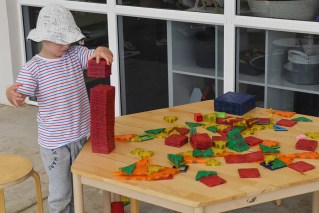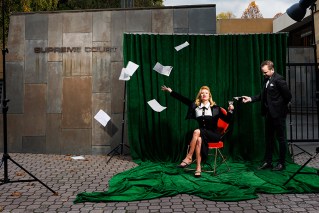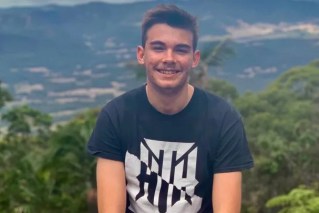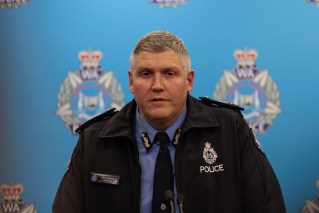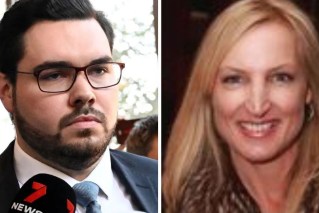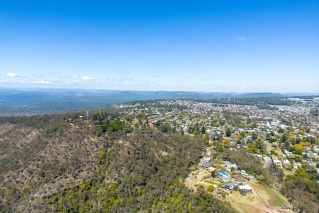‘Unforgivable’: Leading epidemiologist calls for urgent hotel quarantine changes

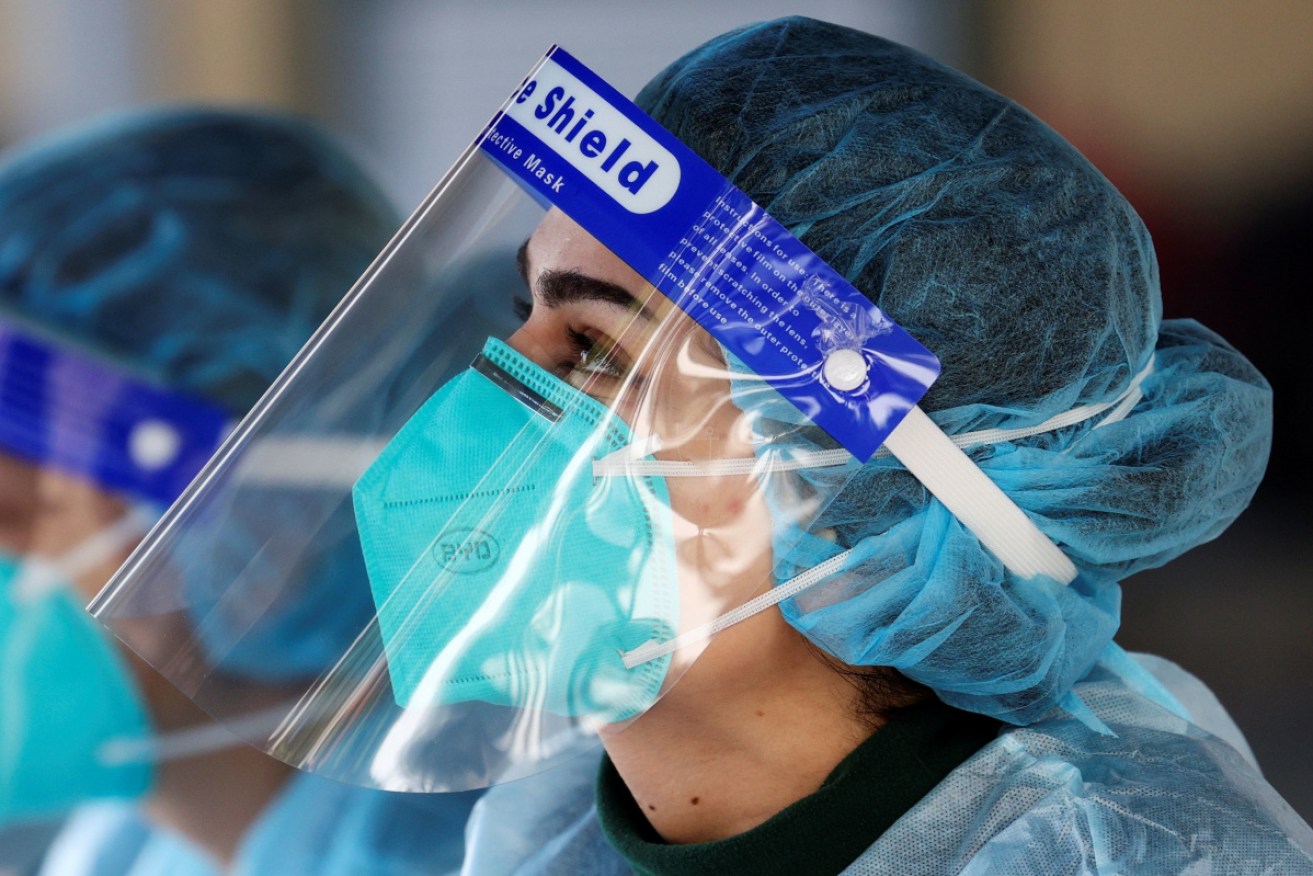
A national set of standards is needed to bring our hotel quarantine program up to date. Photo: AAP
The latest COVID leak from hotel quarantine is fuelling demand for federal intervention, with a leading epidemiologist claiming some state health authorities are ignoring a vital transmission weakness.
Health Minister Greg Hunt praised Australia’s program as “the best in the world”, but there’s growing talk of a total overhaul.
“Hotel quarantine isn’t fit for purpose,” Dr Andrew Miller, West Australian president of the Australian Medical Association, said on Monday.
“Hotels cannot be made safe for COVID-19-positive people.”
But Monash University public health professor Mike Toole says New South Wales, Queensland and Western Australia are using outdated hotel quarantine systems that are putting our virus safety at risk.
A ‘national approach’
Perth’s latest lockdown was lifted on Monday.
Premier Mark McGowan is still demanding the federal government take a stronger role in quarantine, but the Morrison government has flatly ruled this out.
Federal Labor’s shadow health minister Mark Butler claimed hotel quarantine was a “mess” and suggested purpose-built Commonwealth quarantine facilities.
Medical experts want the federal-state political standoff to stop, begging for urgent changes to be made to the current hotel quarantine model.
They cite a growing body of evidence the virus spreads through airborne transmission and aerosol – not just droplets or on surfaces, as previously thought.
Since November we've had 14 hotel quarantine leaks — two in Perth, one in Adelaide, two in Melbourne, six in Sydney and three in Brisbane. Time for a national standard. And disband ICEG.
Two people contracted COVID-19 in hotel quarantine in Perthhttps://t.co/Yp21OAUa0E
— Michael Toole 🇺🇦 (@profmiketoole) April 21, 2021
Professor Toole is a leading epidemiologist at the Burnet Institute and spent 10 years at Atlanta’s Centre for Disease Control.
He is concerned state governments are running differing quarantine models, which he said puts some cities at higher risk of COVID leaking into the community.
Professor Toole is calling for a nationally consistent approach to quarantine, claiming some states were working off outdated ideas about the virus.
He has recently been investigating how different states manage hotel quarantine.
He believes Victoria and South Australia are “doing everything they can” to eliminate risk, citing strict PPE procedures, audits of rooms for pressure and ventilation, and accepting that COVID may spread through the air – potentially infecting travellers in rooms that share air-conditioning, or people along the same corridor.
The CDC has warned COVID may travel in the air in “poorly ventilated and enclosed spaces”.
Professor Toole called for change in NSW, Queensland and Western Australia – states he said were “still doing what they were doing six months ago”.

Calls for a hotel quarantine overhaul are growing. Photo: AAP
“In all hotels, there’s protocols against droplet transmission. What they haven’t done uniformly is stop the aerosol transmission,” he said.
“That’s unforgivable.”
Professor Toole wants the federal government to step up and help set new standards.
“The national government has the authority to get the states and quarantine managers together, and come up with a standard,” he said.
“It should be a code of practice on ventilation, masks, PPE, how many times arrivals should be tested in quarantine. It could take one meeting.”
Professor Toole supported SA and Victoria no longer using private security guards, but worried other states hadn’t followed suit.
He also called on states to conduct audits of hotel ventilation and air-conditioning, and for COVID tests to be conducted more regularly in quarantine.
Victoria, he said, tests people four times during their 14-day hotel stay. Other states test just twice, potentially meaning infected travellers stay in the hotel for too long.
Professor Toole recommended states like NSW conduct “a thorough ventilation audit of every quarantine hotel room”.
He warned the virus may spread through such innocuous encounters as people opening their hotel doors to pick up their meals, allowing the virus into hallways and then into other nearby rooms.
He also called for all hotel staff in contact with guests to wear high-quality N95 or P2 masks, plus face shields, which is not standard in all states. Dr Miller said states should “put everyone into N95 masks tomorrow”, claiming that change would be “low-hanging fruit”.
Labor’s Mr Butler said new quarantine facilities needed to stop travellers “sharing the same air with poor ventilation arrangements”.
He said that, after a year of the pandemic, it was time to rethink the system.
“We now understand very clearly that aerosol transmission is a key driver of these infections. And where hotels don’t have proper ventilation in place we see these outbreaks,” Mr Butler said.
“Hotel quarantine was a relatively short to medium-term option to deal with Australians needing to come back home. It is not a long-term option.”
‘Best in the world’
Mr Hunt waved off concerns around hotel quarantine on Monday, praising the system and noting it had allowed tens of thousands of Australians to return home.
“Our system is extraordinarily tight. In my view, the best in the world. But we’re always seeking to strengthen it,” he said.
The Health Minister accepted some states had “different views”, but that the federal government was “working in partnership” to keep the system running.
“We’ve had a national review of hotel quarantine led by Jane Halton. That put in place standards and protocols across the country, and the states have done it,” Mr Hunt said.
But Professor Toole responded that the review by Ms Halton, the former health department secretary, did not investigate potential airborne transmission of COVID.
He said more reviews were needed.
“[Ms Halton] wasn’t asked to go into detail on airborne transmission. She was looking at the overall way quarantine was being run. At the time, it hadn’t yet emerged that airborne transmission was a risk,” he said.
“Airborne transmission didn’t hit their radars.”


